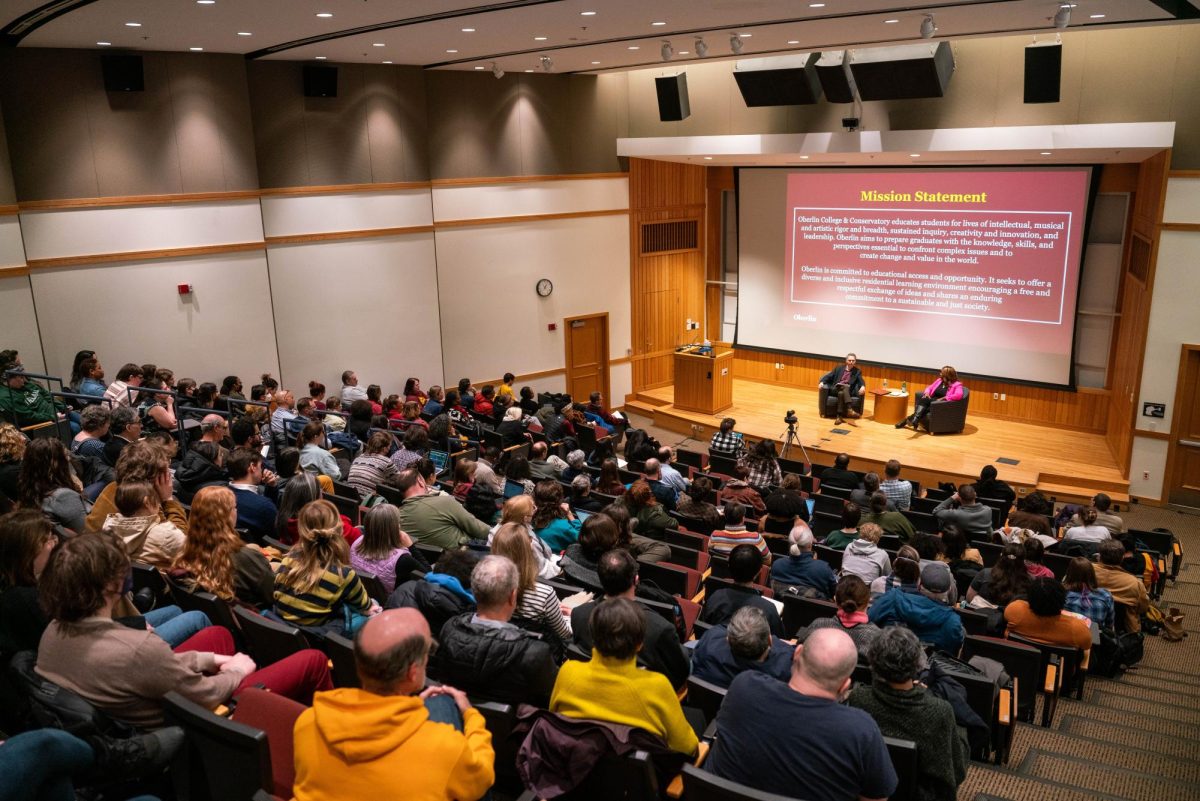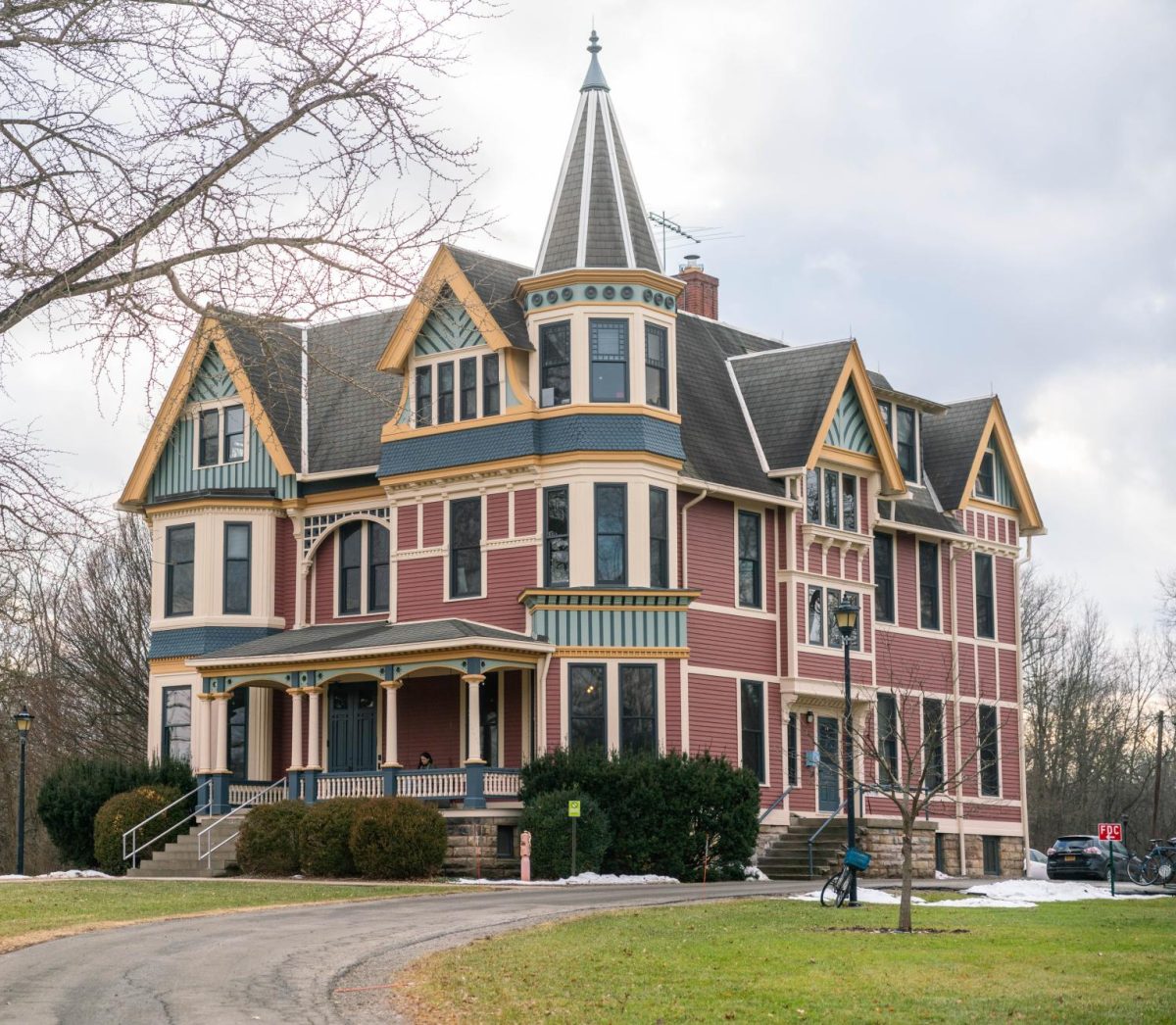Flaharty’s Spring Awakening Ethereal, Relevant
December 9, 2016
The Oberlin College Theater Department presented a stunning and poignant rendition of Spring Awakening over the weekend. The musical is an exploration of the emotional turmoil of teenage sexuality, love and angst. Despite its late 19th-century setting, several of the themes it addresses — such as abortion, sexual and domestic violence, depression and suicide — remain highly relevant to today’s social and political discourse. While the societal climate surrounding many of these issues has shifted drastically over the last century, the narrative still speaks to the persistence of violence and repression today and serves as a reminder of just how far from solved these issues are.
The story’s emotional impact was enhanced by associate professor of Opera Theater and director Chris Flaharty’s staging of the musical, with its vibrant, swirling colors and ethereal lighting, as well as the intimate seating arrangement. Audience members were seated on what normally serves as a stage, offering a simple black-box experience and more spatial flexibility for the choreography, as well as closer proximity to the cast.
Melchior Gabor, the musical’s complex male lead, was brilliantly portrayed by College senior Shane Lonergan. Melchior is the only character to truly question the repressive society he lives in. While he is in many ways the musical’s protagonist, his character also contains a much more disturbing side revealed when he cruelly beats his lover, Wendla Bergman (played by double-degree senior Amy Weintraub), at her request, and when he coerces her into sex before she is ready. The nuances of Lonergan’s performance brought to life a character violently alienating in his ignorance yet sympathetic in his struggle, culminating in the emotional penultimate scene and his realization that he is partly to blame for the deaths of his best friend Moritz Stiefel (played by College sophomore Joe Owens), who took his own life, and Wendla, who died from complications of a botched abortion after being shunned for carrying Melchior’s child.
One of the few hopeful scenes in the play was between Hanschen Rilow and Ernst Robel, played by College sophomores Kieran Minor and Casey McKinney respectively. The scene of the two boys confessing their love for each other was comedic, poignant and tender. It lent an otherwise largely tragic story a glimmer of hope, that perhaps the younger generation wasn’t doomed to live forever subject to the strict gender and sexual norms demanded by their parents. The play is, at its core, about teenagers trying to break free from society’s rigid expectations. Some characters fought against these expectations while others gave in. The play reminds us that even to this day we are fighting for a world that is more accepting, open-minded and transparent. With heartfelt acting and stellar musicianship, Oberlin’s production of Spring Awakening brought its audience on an emotional journey not many will soon forget.






















